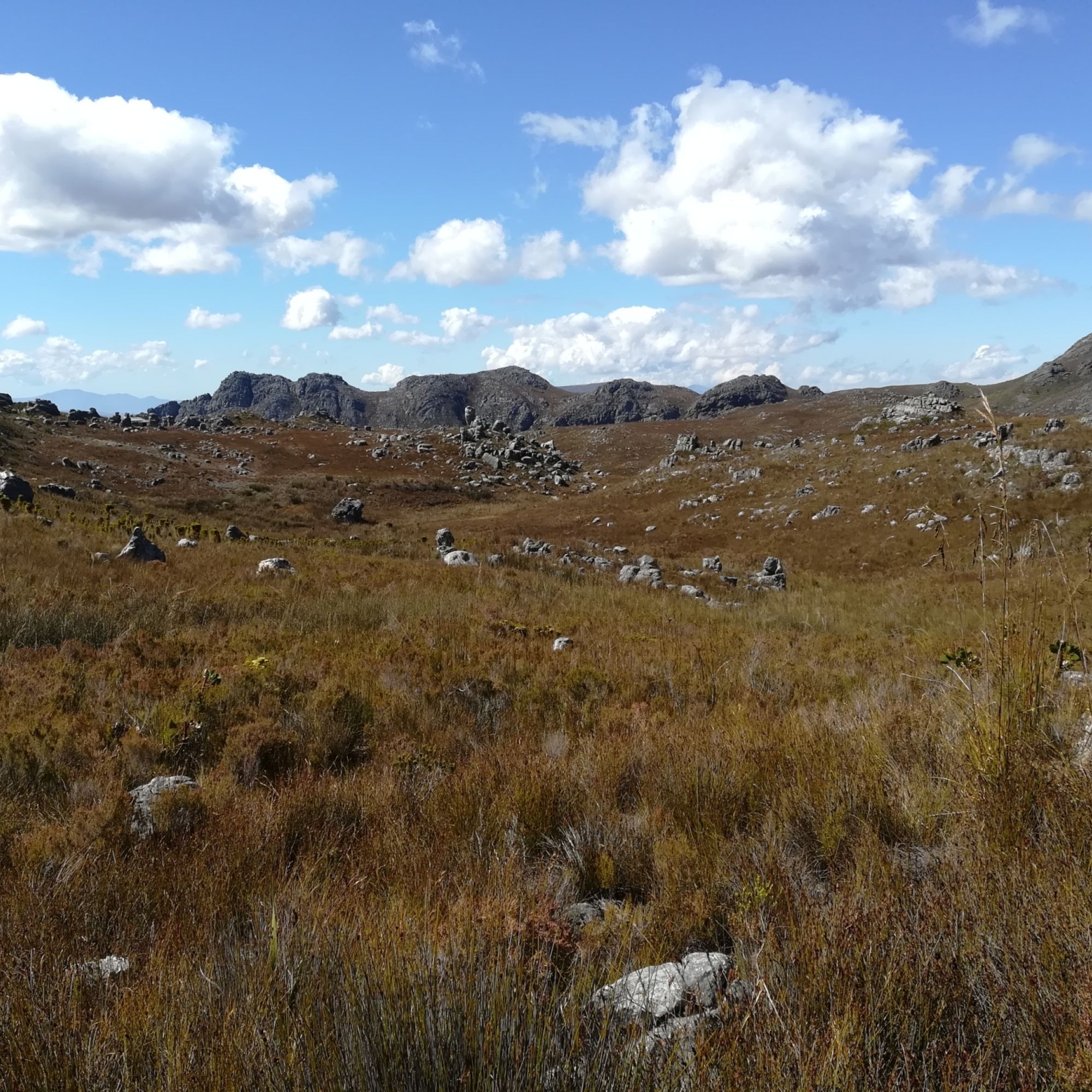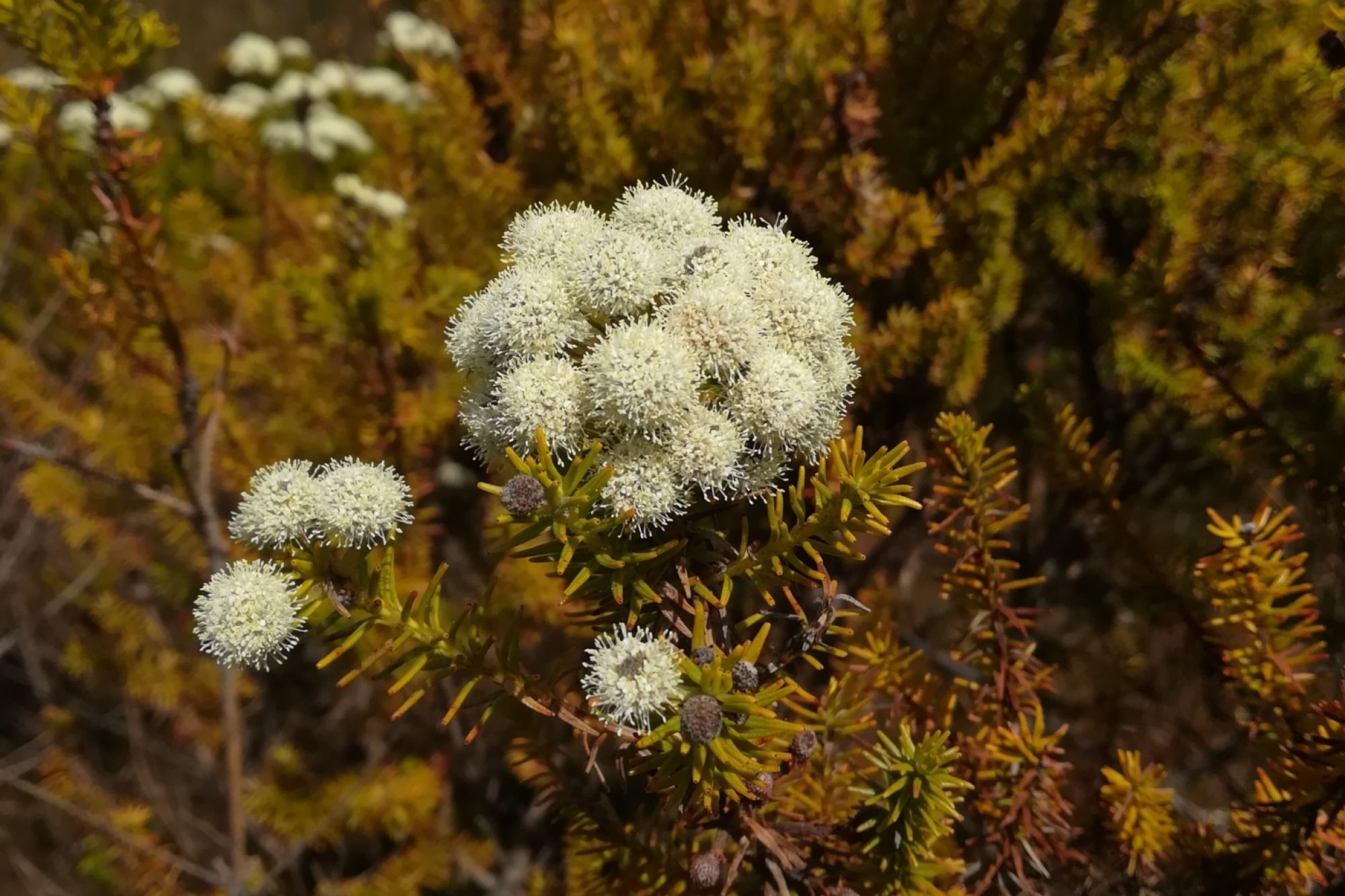
Monitoring Wetlands on CapeNature Reserves
Monitoring of wetlands in the Protected Areas within the Central Landscape was initiated during September 2022 at the Jonkershoek and Hottentots Holland Nature Reserves. Two days per Nature Reserve were set aside, consisting of a desktop assessment of the existing wetlands spatial layers for the relevant areas on the first day, including identification of possible sites for long term monitoring, followed by a field day where the chosen sites were visited and assessed. These first trips served as the baseline surveys prior to required long-term annual monitoring of wetlands. The other Protected Areas within this Landscape will be visited during October 2022. They include Limietberg, Kogelberg and Waterval-Hexriver nature reserves.
The Boland Nature Reserve complex nature reserves, fall into Strategic Waters Source Areas for both groundwater and surface water. This makes monitoring the health of freshwater ecosystems on the Nature Reserves within this Complex important, both from a biodiversity conservation and ecosystem services perspective.
Together with monitoring of selected river sites in the Complex, CapeNature also included wetland monitoring during the development of the Boland Nature Reserve Complex Protected Area Management Plan development process. The monitoring of rivers has been going for many years but monitoring of wetlands was only initiated this year. All the monitoring projects fall within the Integrated Work Plan and Eco-matrix planning for the relevant Nature Reserves. These include, Jonkershoek, Hottentots Holland, Limietberg, Kogelberg and Waterval-Hexriver Nature Reserve Complex.
Most wetlands in these nature reserves are expected to be seep wetlands, however there is some variation in wetland types across the Complex. For example, one of the wetland systems chosen for Hottentots Holland Nature Reserve, consists of a hillslope seep feeding into a bench flat, which then feeds into a seep, all which forms part of the source zone of the Palmiet River. Specific wetlands sites are chosen according to several criteria, related to for example, a specific ecosystem service, whether it is a groundwater dependent wetland (groundwater fed), the type of potential impacts on the system, like presence of Invasive Alien plants and production boreholes (groundwater abstraction) nearby. Each Nature Reserve also contains different regional vegetation types. The threat status of these regional wetland types differs between wetland hydro-geomorphic types (i.e., wetland type according to its position in the landscape and how water moves through the system).
The regional wetland types within the Boland Nature Reserve Complex provides habitat and refuge to various red listed plant species such as Ursinia caledonica, and threaded animal species such as various frog species, some of which are also being monitored over the long term. These systems also provide breeding and foraging grounds for various bird species and insects like dragonflies and damselflies.

Landdroskop seep wetland system in the Hottentots Holland Nature Reserve.

Many plant species are dependant on wetlands such as this beautiful Berzelia lanigunosa which is also an obligate wetland plant, meaning it only occurs in wetland areas.


